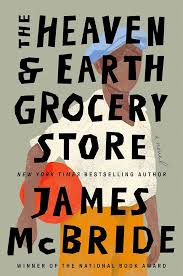Chapter 20: The Antes House
byChapter 20: The Antes House begins with an annual tradition drenched in irony and contradiction. What appeared to be a grand celebration of local heritage was, at its core, a parade of contradictions—where brass instruments blared for a forgotten composer and flags fluttered over a building more often used as a back-alley dive than a historical monument. The John Antes Historical Society and Pottstown’s city council observed Memorial Day with feigned reverence and theatrical rituals, while residents gorged on sausages and beer. But underneath the revelry lay hypocrisy. The Antes House, glorified once a year as a shrine to patriotism, spent the other 364 days as a hiding spot, hangout, and refuge for Pottstown’s outcasts. The temporary transformation of the property, scrubbed and painted for the occasion, was a desperate attempt to preserve the illusion of nobility. But history, especially American history, doesn’t scrub clean that easily—it’s layered with blood, prejudice, and uncomfortable truths no parade can fully conceal.
Gus Plitzka sat through the ceremonies more out of obligation than pride, hiding a throbbing toe and a gnawing anxiety far greater than physical pain. He had recently taken over Clover Dairy and was burdened with a $1,400 debt owed to a Philadelphia gangster named Nig Rosen—an arrangement that spiraled into extortion. Gus’s fear grew with each passing day, knowing the loan shark’s men had already made appearances at his office. Every uniformed trumpet blast in the parade was overshadowed by the fear that a different kind of uniform—dark suits and hard faces—might be waiting at his door. Amid the marching and speeches, he searched for a quick fix to his swollen toe, cornering Doc Roberts, an old rival, for a diagnosis. Their mutual disdain lingered, a relic of past political slights and ethnic tensions between old-line families and new-money immigrants. Still, desperation made allies of enemies—at least temporarily—and Doc reluctantly agreed to check on his foot later that day.
Doc, though posturing as indifferent, was unraveling beneath the surface. Ever since the death of Chona, a local woman shrouded in mystery and accusation, he had been carrying a heavy weight. A mezuzah, which had somehow ended up in his pocket, reminded him of her and the chaos that followed her death. His plan to leave it quietly near Chicken Hill symbolized his guilt and the fear of being connected to something that might not have been fully accidental. Pottstown whispered with rumors, and Doc suspected they all pointed to him. The parade, meant to honor freedom and tradition, instead became a stage for unease and unresolved tension—between white leaders and Black residents, between memory and forgetting, between Doc’s past and the silence pressing in on him. The crowd shifted. New faces walked by. Doc noticed. So did Gus, who muttered racist slurs without restraint, revealing the true spirit beneath the ceremonial uniforms.
Their conversation teetered between veiled threats and mutual suspicion. When Gus probed Doc about the “Jewess,” Doc tried to appear unfazed, though every word landed like a hammer on his nerves. The mention of rumors, of what people might be saying, was a not-so-subtle accusation. Doc deflected with carefully chosen words, clinging to the official narrative of a seizure, a frightened boy, and a tragic misunderstanding. But Gus wasn’t satisfied, and his parting comments stung: there were no witnesses to confirm Doc’s story, and the whispers in town weren’t going away. The old political rival now held power over him—not just with votes or council decisions, but with secrets. Doc’s careful, composed world was unraveling in the shadow of the Antes House, and even the town’s attempt to preserve its mythic past couldn’t disguise the rot creeping in from beneath.
Behind the spectacle and speeches, this chapter reveals how small-town power operates—not through justice or legacy, but through alliances, secrets, and fear. Both Plitzka and Doc carry histories of control and compromise, each trying to protect what they’ve built, even if it means rewriting or ignoring truth. The Antes House, a crumbling relic of revolutionary pride, becomes a perfect metaphor for this decay. Its façade is polished once a year to distract from its actual use: a gathering point for those pushed to the margins. And beneath the surface, Pottstown is shifting. African American residents grow more visible, their presence stirring old prejudices. But their glances, their quiet walks up Chicken Hill, speak volumes. They’ve noticed. They remember. And even without a parade, they carry their own history—one not etched in plaques but passed through survival and strength.
This chapter illustrates how public rituals often mask private tensions. While flags wave and cornets sound, men like Plitzka fear the consequences of their decisions, and men like Doc wrestle with guilt cloaked in silence. American history, celebrated with fanfare in front of the Antes House, is revealed here as something far more complex—layered with exploitation, denial, and the desperate need to appear honorable while burying the truth. And still, the town marches on. The parade continues. But not everyone claps. Some watch. Some wait. And some remember what others would rather forget.


